Immunologists specialize in the prevention, diagnosis, treatment and management of immunological disorders - which are caused by either immunodeficiences or autoimmunity.
Video Overview of Immunology
About Immunology
Immunology is the scientific study and treatment of the human body’s ability to fight off invasion by foreign, disease causing agents or microorganisms. As such, the field of immunology often overlaps with the field of microbiology - the two areas are involved in the vast majority of disease processes. The medical field of immunology is concerned with the functioning of the immune system in both the healthy and diseased states. Immunologists are trained in the breakdown of immune system functioning in immunological disorders and diseases; these specialists are experts with regard to the physical, chemical and physiological aspects of the various parts of the immune system in vitro, in situ, and in vivo.
Immunologists are trained to treat both autoimmune and immunodeficiency disorders. Autoimmune disorders occur when a patient’s immune system begins to attack healthy cells, making the system unable to distinguish between the body’s own cells and antigens (an agent or substance that causes the body to produce antibodies). Autoimmune diseases treated by an immunologist may include celiac disease, autoimmune arthritis, Addison’s disease, type I diabetes and multiple sclerosis, among many others. Diseases such as cancer, Alzheimer’s disease and heart disease are all cause by autoimmune disorders, and can be very dangerous if not treated by an immunologist.
Immunodeficiency disorders are those that affect the body’s ability to create a response to disease causing agents in the body, which can encompass a complete lack of response or a partial lack of response by the immune system. Patients suffering from immunodeficiency disorders are highly susceptible to sickness, as their immune system does not function properly. Some of these disorders include AIDS, immune depression relating to age, severe combined immune deficiency (SCID), DiGeorge syndrome and selective deficiency of IgA, among many others. Similar to autoimmune diseases, immunodeficiency disorders can have serious adverse effects on a patient’s health if left untreated by an immunologist.
Immunology Education & Training
The training to become an immunologist begins with the completion of a four year undergraduate degree, with a focus on scientific and mathematical courses. Following acceptance into medical school, the student must complete four years of general medical education that leads to an MD or DO degree.
After graduating from medical school, the completion of a three year residency program in either pediatrics or internal medicine is required. During a residency the physician will diagnose and treat patients, as well as complete medical research. After successful completion of a residency, the physician must enter into a two to three year allergy and immunology fellowship program, where the physician receives advanced training in the diagnosis and treatment of allergic reactions, allergic disorders, immunodeficiency disorders and immunologic disorders.
Many immunologists seek board certification from the American Board of Allergy and Immunology (ABAI). In order to practice medicine, immunologists must hold a valid medical license from the state(s) in which they practice.








